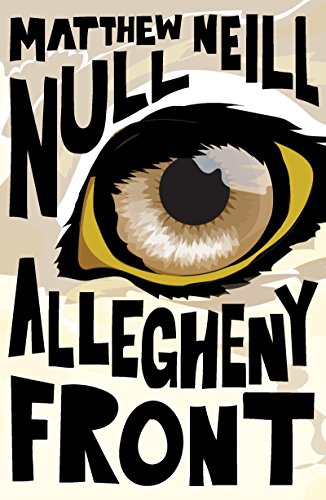
Allegheny Front is a severe book. It’s a book that doesn’t trouble itself to protect the reader. “An animal has just enough brains to cure its own hide,” muses a man who is pages away from having just enough brains to see his own hide opened by a shotgun blast. In this collection of stories, his second book after the novel Honey from the Lion, Matthew Neill Null gives us a near-journalistic depiction of the violence men have wrought on nature and on themselves. But Null is shifty, prone to sliding into a different kind of honesty, a shelter-in-the-storm tenderness made all the more seductive due to its relative scarcity in the collection. Null is from West Virginia, and most of the literary press surrounding Null’s work lays the West Virginia on pretty thick — this interview is no exception. The insistence on the West Virginia narrative is not without good reason, though; Null is in possession of a ranging, encyclopedic knowledge of the Mountain State that is every bit as deep as it is wide. Over the course of a few emails, I had the pleasure of speaking with Null about a variety of topics from the efficacy of spoken stories to the forgotten work of Wendy Brenner.

 The Millions: West Virginia is all over your work. In Lydia Millet’s introduction to this collection, she admits to knowing “almost as little of hardscrabble country life in West Virginia as it’s possible to know.” I know about the Wild and Wonderful Whites and prescription pills. I’ve heard the lazy, ridiculous incest jokes since I was a kid. I suspect most of your readers will be bringing a similar patchwork of misinformation regarding West Virginia to the table — do you see Allegheny Front and Honey from the Lion as an attempt to complicate — or at least augment — this bizarrely pervasive cultural perception in any way?
The Millions: West Virginia is all over your work. In Lydia Millet’s introduction to this collection, she admits to knowing “almost as little of hardscrabble country life in West Virginia as it’s possible to know.” I know about the Wild and Wonderful Whites and prescription pills. I’ve heard the lazy, ridiculous incest jokes since I was a kid. I suspect most of your readers will be bringing a similar patchwork of misinformation regarding West Virginia to the table — do you see Allegheny Front and Honey from the Lion as an attempt to complicate — or at least augment — this bizarrely pervasive cultural perception in any way?
Matthew Neill Null: There are so many different people in a place like West Virginia, but we bear down on the most lurid aspects. The pill-eaters certainly exist — some are my pals! — but this vision leaves out the county surveyor, the deacon, the forester, the nurse raising kids on her own. But the world has certain expectations, and you’ll never go broke on stereotype. Writers like Daniel Woodrell have parleyed this into good, long careers. I think of it as meth-lab trailer porn.
I give a fuller spectrum of life because that is my experience of the place; my family has lived there for generations, since a time before the United States existed. My mom, who came from a modest background to say the least (her toy was an empty guitar case, and the house had no indoor plumbing), went to nursing school and climbed the ladder. My dad was a lawyer, from a family that has risen and fallen and risen again. One grandfather was a union pipefitter, the other a mechanic for Columbia Gas — though his father had been a state senator. I was blessed because we had friends from the entire expanse. It was a small place. Everyone was necessary. This is rare, I now know. We are stratified on the level of class. You walk into a party and find out everyone went to Bard together.
TM: In an interview with American Short Fiction, you bring up Breece Pancake as being generally accepted as the best writer to have come out of West Virginia. You go on to say that with Allegheny Front you wanted to “do something different, because if you’re a writer from West Virginia, particularly a white male, you’ll be compared to [Pancake].” It’s strange to imagine writing in the shadow of a 26-year-old man who died some 30-plus years ago whose name still might not ring a bell with many readers. Is this indicative of a shortage of West Virginia literature in general? Or is it just not getting the attention it deserves? Are there West Virginia writers we are woefully unaware of?
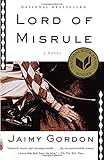
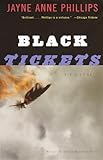 MNN: Oh man, I’m not the best person to ask. I’ve consciously avoided writers from my territory, because I wanted to engage the place totally, with my own language, own vision. I’m sure there are woefully overlooked writers of skill, as there are everywhere. My favorite West Virginia books are Black Tickets by Jayne Anne Phillips and Lord of Misrule by my pal Jaimy Gordon, as well as Muriel Rukeyser’s U.S. 1, with its long section on the Hawk’s Nest Tunnel disaster.
MNN: Oh man, I’m not the best person to ask. I’ve consciously avoided writers from my territory, because I wanted to engage the place totally, with my own language, own vision. I’m sure there are woefully overlooked writers of skill, as there are everywhere. My favorite West Virginia books are Black Tickets by Jayne Anne Phillips and Lord of Misrule by my pal Jaimy Gordon, as well as Muriel Rukeyser’s U.S. 1, with its long section on the Hawk’s Nest Tunnel disaster.
 If people have encountered any writing from West Virginia, it’s likely The Stories of Breece D’J Pancake, which has had a cult revival, thanks to many champions such as John Casey, Andre Dubus III, and Kurt Vonnegut. In my grad program, people were obsessed with it.
If people have encountered any writing from West Virginia, it’s likely The Stories of Breece D’J Pancake, which has had a cult revival, thanks to many champions such as John Casey, Andre Dubus III, and Kurt Vonnegut. In my grad program, people were obsessed with it.
Pancake killed himself at 26 in a bizarre episode, so his slender oeuvre is frozen like a fly in amber. Certainly the book of a troubled young man, confused, hurt, haunted by the land and history and class, still coming to terms with women and rejection. I wanted a more expansive world. We prize the human perspective too much. I mean my book to be a corrective to a certain understandable chauvinism.
TM: In “The Slow Lean of Time,” one of the characters dies and another is reassured by the fact that the drowned man “would live on on their tongues, not forever, but for a while, the nearest thing to forever.” Your stories often flirt with this collision of past and future, of old ways which eventually must submit to new. In “The Second District,” one of the hunters (who, rather primitively, has just used a dog to cave a bear) is prideful of owning “the first phone I encountered that could take pictures.” My question is this: why are these “stories that live on the tongue” still so vital when we live in a world where everyone has a phone that takes a picture?
MNN: If you look at social media, you see this leveling of American culture. Everyone has the same photo of the same beach, the same blue water, same wedding party, same slang, same songs, same movies. We have one lingua franca. We curate ourselves for mass consumption. But real speech, in the moment, in groups of two or three, tears at the veil. What we say that is not recorded. Drunken confession. Botched jokes. The rejected advance. Campfire at a deer camp. The novel as village gossip. The writer must rescue the whispered and the regrettable. I’m from a place totally shaped by talk, by verbal facility. All that silence, space, and privation gave people that gift, like the Irish, like Southerners. It was our currency, in lieu of any other. If you went to buy cigarettes, you weren’t getting out of there without a 20-minute conversation with the cashier and a couple sheep jokes.
The uneasy relationship between a past and an uncertain future is the major pivot of my work. It is impossible to shear my family’s identity from the West Virginia landscape. But I came of age at a time that was hyper-conscious of the fact that the place was dying. Free land brought us; we were broken on the rock of global capitalism. My world is gone, but we lived rich, particular lives there.
The fiction I’m writing now has a new focus: how to live in a world where there is no future. I find myself going back to beloved writers from Eastern Europe under communist regimes: Tadeusz Konwicki, György Konrád, Danilo Kiš. In absence of hope, their gaze is forced backwards. This may be a dead road, but I’m looking for a hint.
TM: I have to ask about the dedication. Your first book, Honey from the Lion, was dedicated, “For the land and the people.” The dedication in this book, however, reads, “For the animals.” At one point during my reading, I joked with myself that I might reread the collection to tally up how many gruesome (or at least very fully realized) animal deaths I came across. Animals — human and otherwise — are not treated particularly well in this collection that dedicates itself to them. What gives?
MNN: Interactions between humans and animals fascinate me. People in West Virginia live close to the bone — I hunted and fished for the table, like most. But if you look at the greatest swath of contemporary America, people encounter animals bloodlessly shrink-wrapped in the grocery aisle, or they keep pets and fetishize them. (I say this as a dog-lover. You take a young thing from its natural mother, inflict Stockholm Syndrome on it, and convince yourself that this is true love.) So I wanted interactions that are not filtered through sentiment or the factory slaughter-house. Force the issue. As Joy Williams says, “Good writing never soothes or comforts.” Look hard at the brutality people inflict on the landscape, the animals, and one another.
I’m from a place with a thin population. Animals filled out my world. In bed at night, I would wonder what the deer were doing up on the ridge. How the trout lived under the ice. So it was important for me to have a story like “Natural Resources” that is partly told from the perspective of animals. For me, the land, humans, and other forms of life are equally balanced; my work explores what happens when the balance is nudged, be it by capriciousness, bureaucracy, or extractive industry.
 The poet Rebecca Gayle Howell is from eastern Kentucky, from a farm family, so we became fast friends. In her collection Render / An Apocalypse, she has poems like, “How to Kill a Rooster,” “How to Kill a Hen.” We’ve both noticed that, at our readings, no one objects to the violence that people do to each other, or that people do to the landscape, but sometimes a person will flip over the death of an animal. I’m not sure what this means. I’m still thinking on it. Perhaps because we project an innocence upon animals — they cannot speak, like very young children. But then, I’ve seen a mink kill a hen and not bother to eat it. It killed for play or for spite.
The poet Rebecca Gayle Howell is from eastern Kentucky, from a farm family, so we became fast friends. In her collection Render / An Apocalypse, she has poems like, “How to Kill a Rooster,” “How to Kill a Hen.” We’ve both noticed that, at our readings, no one objects to the violence that people do to each other, or that people do to the landscape, but sometimes a person will flip over the death of an animal. I’m not sure what this means. I’m still thinking on it. Perhaps because we project an innocence upon animals — they cannot speak, like very young children. But then, I’ve seen a mink kill a hen and not bother to eat it. It killed for play or for spite.
When I was rattling around for my novel, sometimes I would read a passage set on this howling winter mountainside — a lion attacks a team of horses, a teamster is mortally hurt, a horse has its foot sheared off when a log pins it against a stump. I worried to Rebecca about that, and she said, “You must get comfortable with discomfort.” With inflicting discomfort. That’s the difference between art and wallpaper.
TM: “Unsentimental” is a word I’ve seen stamped all over reviews of your work, usually always intended as complimentary; for whatever reason, “sentiment” has become a pejorative. That said, one of the stories from this collection, “The Island in the Gorge of the Great River,” elicited more of an emotional response from me than anything I’ve read recently. I think perhaps my reaction had something to do with the relative lack of obviously emotional points of reference in your work — a sort of supply/demand relationship. Is this a balance you’re conscious of striking or is it something that happens on its own?
MNN: In “The Island in the Gorge of the Great River,” I wanted to summon that sharp, bone-deep desire most of us feel toward someone when we’re young — it’s so immediate and annihilating there’s no way to resist. Well, okay, we feel it when we’re older, too, but if fate has blessed us with wisdom, we manage it better. (I’ve not been blessed.)
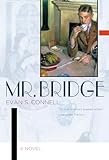
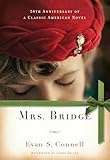 My tendency is to withhold emotion for as long as possible, then release it at certain, charged moments. I noticed this early on as a symptom of my writing, then began to use it more consciously as a tactic. That said, now that I’ve written two books, I want to tear down my practice and find a new syntax. I’m a couple hundred pages into a novel, part of which follows the dissolution of a long and disastrous marriage, so the exploration of the characters’ interior emotional landscape must be more a part of it. But even then, I don’t think I’m capable of going too far in the other direction. Sentimentality (not sentiment) is the enemy and the destroyer. Evan S. Connell is impressive in Mrs. Bridge and Mr. Bridge. A master of restraint. Even if the characters cannot articulate it to themselves, you always know what they feel. Connell is the forgotten American stylist of the 20th century. Such an elegant writer. His nonfiction works are just as startling, if not more so.
My tendency is to withhold emotion for as long as possible, then release it at certain, charged moments. I noticed this early on as a symptom of my writing, then began to use it more consciously as a tactic. That said, now that I’ve written two books, I want to tear down my practice and find a new syntax. I’m a couple hundred pages into a novel, part of which follows the dissolution of a long and disastrous marriage, so the exploration of the characters’ interior emotional landscape must be more a part of it. But even then, I don’t think I’m capable of going too far in the other direction. Sentimentality (not sentiment) is the enemy and the destroyer. Evan S. Connell is impressive in Mrs. Bridge and Mr. Bridge. A master of restraint. Even if the characters cannot articulate it to themselves, you always know what they feel. Connell is the forgotten American stylist of the 20th century. Such an elegant writer. His nonfiction works are just as startling, if not more so.
TM: You’re something of a compendium of “writers I should have heard of by now.” Who else should I be embarrassed not to know about?


 MNN: Wendy Brenner is a fabulously talented short story and essay writer. She hits a sweet spot between Joy Williams and Padgett Powell, though she has a voice all her own, often more poignant. Begin with her essays for the Oxford American, specifically “Love and Death in the Cape Fear Serpentarium” and “Strange Beads,” then read her story collection Large Animals in Everyday Life.
MNN: Wendy Brenner is a fabulously talented short story and essay writer. She hits a sweet spot between Joy Williams and Padgett Powell, though she has a voice all her own, often more poignant. Begin with her essays for the Oxford American, specifically “Love and Death in the Cape Fear Serpentarium” and “Strange Beads,” then read her story collection Large Animals in Everyday Life.
Paula Nangle’s woefully-overlooked novel The Leper Compound follows a young girl into adulthood as Rhodesia is becoming Zimbabwe. A poet’s novel, in a way. I’ve met precisely one other human being who has read it.
Sybille Bedford’s A Legacy is a moving dream. I don’t even want to talk about it.

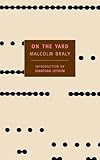 Malcolm Braly’s On the Yard is a prison novel, written while the author was incarcerated in San Quentin. But this isn’t the rough diamond you expect from prison lit. This novel is technically flawless. His memoir False Starts is out-of-print, once again proving the world is unjust.
Malcolm Braly’s On the Yard is a prison novel, written while the author was incarcerated in San Quentin. But this isn’t the rough diamond you expect from prison lit. This novel is technically flawless. His memoir False Starts is out-of-print, once again proving the world is unjust.
TM: You’ve mentioned a world where there is no future, Eastern European communist regimes, and intentionally inflicting discomfort — this “dissolution of a marriage” novel is shaping up to be a real hoot! I’m having a difficult time imagining your work taking place under a roof. Are we still in West Virginia? Can you spill the beans?
MNN: In The Rumpus, the reviewer Micah Stack actually counted up what percentage of Allegheny Front takes place inside — he said it was less than two percent! I love it.
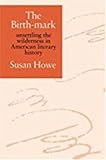
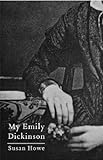 I don’t want to lift the lid off the pot, but the next novel takes place in the early-1960s, mostly in West Virginia but with interludes elsewhere. It traces political corruption, the rise and fall of the Great Society, and the tension between Marxists and anti-communist liberals in the American labor movement. The story of rural life is thought to be incoherent. It is not. Global political forces shape the private lives and social crises of characters who live in distant, even isolated areas, seemingly far from the main stage of history and the centers of power, commerce, and media. Susan Howe displays this to great effect in My Emily Dickinson and The Birth-Mark.
I don’t want to lift the lid off the pot, but the next novel takes place in the early-1960s, mostly in West Virginia but with interludes elsewhere. It traces political corruption, the rise and fall of the Great Society, and the tension between Marxists and anti-communist liberals in the American labor movement. The story of rural life is thought to be incoherent. It is not. Global political forces shape the private lives and social crises of characters who live in distant, even isolated areas, seemingly far from the main stage of history and the centers of power, commerce, and media. Susan Howe displays this to great effect in My Emily Dickinson and The Birth-Mark.
TM: I noticed a conspicuous lack of mining throughout this collection. It’s almost always there, but you keep it out of the foreground. Was this a deliberate move to avoid another of those tired West Virginia tropes, or is that just one more of the ways in which the state has been misrepresented?
MNN: My friend Phyllis says that the quintessential West Virginia story features a laid-off coal miner whose wife has just left him. He broodily gets whiskey-drunk (okay, meth-addled if the story was written in the last decade), goes deer-hunting (preferably with his dead father’s rifle), and accidentally shoots his beloved hound dog. The trailer door slams. He is now truly and forever alone.
But more seriously, yes, I wanted it to be in the background, always there, pervasive but rarely noticed, dark clouds on the horizon. In my novel, in their difficult moments the male characters always think of going into the mines. “If my life doesn’t pan out, I can always do this.” They think of it wistfully, as one thinks of suicide.








